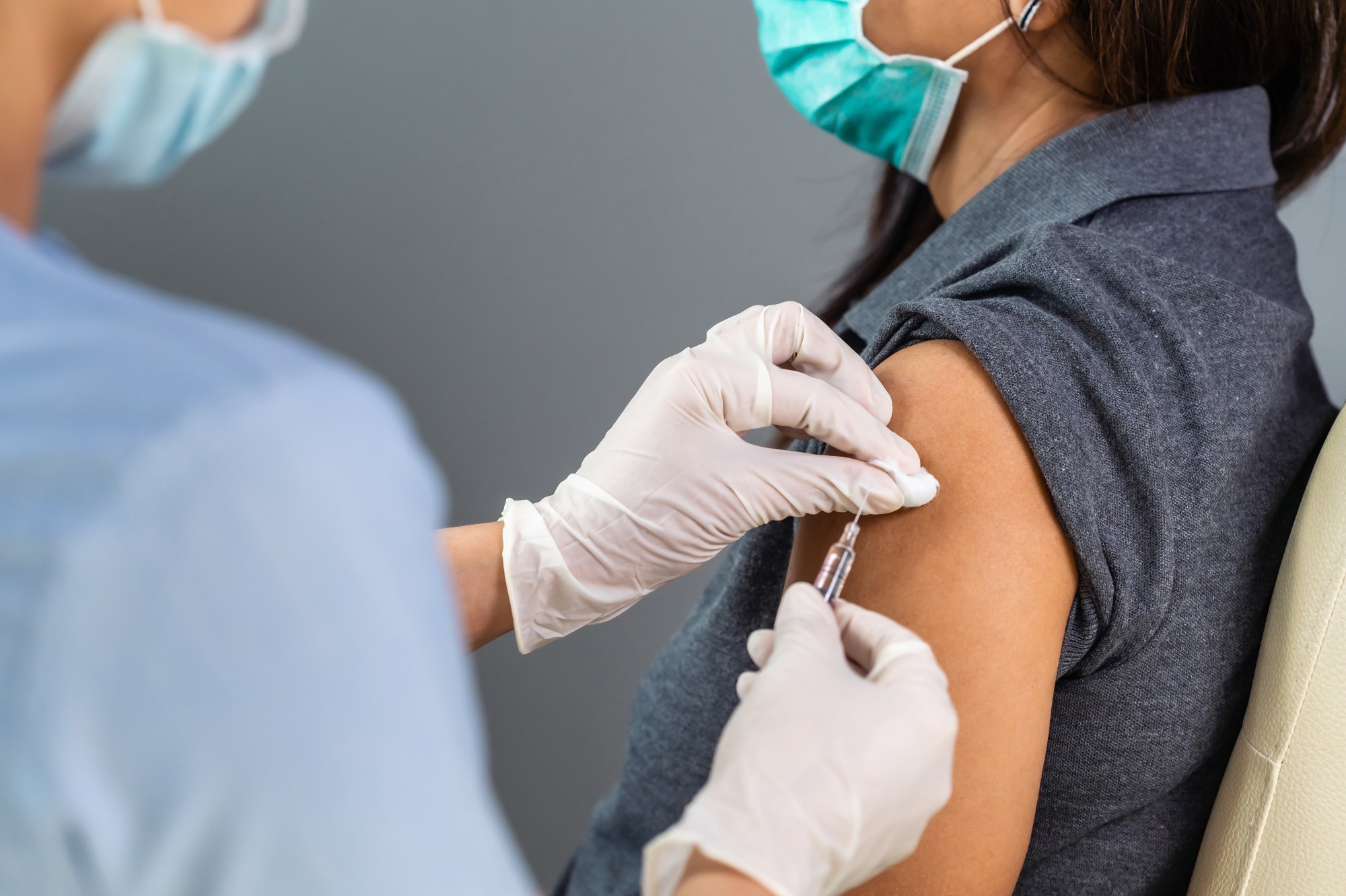In a recent study posted to medRxiv* preprint server, researchers examined the factors associated with stroke following coronavirus disease 2019 (COVID-19) vaccination.
 Study: Factors Associated with Stroke after COVID-19 Vaccination: A Statewide Analysis. Image Credit: BaLL LunLa/Shutterstock
Study: Factors Associated with Stroke after COVID-19 Vaccination: A Statewide Analysis. Image Credit: BaLL LunLa/Shutterstock

 *Important notice: medRxiv publishes preliminary scientific reports that are not peer-reviewed and, therefore, should not be regarded as conclusive, guide clinical practice/health-related behavior, or treated as established information.
*Important notice: medRxiv publishes preliminary scientific reports that are not peer-reviewed and, therefore, should not be regarded as conclusive, guide clinical practice/health-related behavior, or treated as established information.
Background
Vaccines against severe acute respiratory syndrome coronavirus 2 (SARS-CoV-2) are effective and safe. However, some rare thrombotic events related to Janssen’s COVID-19 vaccine (Ad26.COV2.S) raised warnings for use in high-risk populations. The first cerebral venous sinus thrombosis case was identified following vaccination with Ad26.COV2.S in 2021.
A study observed vaccine-induced thrombotic thrombocytopenia in individuals mostly primed with viral vector vaccines. In contrast, other studies on mRNA vaccines have not observed a higher incidence of ischemic stroke after vaccination. The advisory committee on immunization practices (ACIP) has recommended the preferential use of messenger ribonucleic acid (mRNA) vaccines over Janssen’s vaccine after comprehensively reviewing existing data.
The study and findings
In the present study, researchers assessed the association of baseline factors, SARS-CoV-2 infection, and vaccine type with early onset of stroke after the first COVID-19 vaccine dose. They included all adults from Georgia, United States (US), vaccinated from December 2020 to February 2022. Demographic and vaccination data were sourced from the Georgia Registry of Immunization Transactions and Services (GRITS) database.
GRITS data were linked to data from the Georgia State Electronic Notifiable Disease Reporting System (SENDSS) and Georgia Coverdell Acute Stroke Registry (GCASR). A 15-digit alphanumeric identifier, the Georgia Longitudinal ID (LONGID), was used to link the data sources. Records lacking LONGID were excluded. The study’s outcomes were acute hemorrhagic and ischemic stroke within 21 days after the first COVID-19 vaccine administration.
This cut-off period ensured that patients were ineligible for the second dose of any vaccine. People with confirmed SARS-CoV-2 infection during this period were considered to have a concurrent infection. Vaccine type served as the main predictor, while demographic variables were covariates. Logistic regression was used to determine the relative risk of early stroke by vaccine type. Five million Georgian adults received their first vaccine dose in the specified period.
Most subjects were females (55%) and White (51%). Of these, around 9% had a history of COVID-19 before vaccination, and 0.4% were infected during the 21-day interval. Most participants received Pfizer’s BNT162b2 (54%), followed by Moderna’s mRNA-1273 (41%) and Ad26.COV2.S (5%). The incidence of ischemic stroke within 21 days post-vaccination was 11.14, 8.14, and 10.4 per 100,000 individuals, respectively, for mRNA-1273, BNT162b2, and Ad26.COV2.S recipients.
Notably, ischemic stroke risk increased by 57% for Ad26.COV2.S recipients, relative to those vaccinated with BNT162b2, after adjusting for sex, age, COVID-19 status, and race. It was not different between BNT162b2 and mRNA-1273 recipients. Individuals with a concurrent SARS-CoV-2 infection had an elevated risk of hemorrhagic and ischemic stroke. No association was observed between vaccine type and concurrent infection.
Conclusions
In sum, the researchers found that a SARS-CoV-2 infection within 21 days post-vaccination was strongly associated with an elevated risk for hemorrhagic and ischemic stroke, irrespective of the type of vaccine. Moreover, ischemic stroke risk was higher with Ad26.COV2.S vaccination after adjustment.
Overall, SARS-CoV-2 infection was highly associated with the early incidence of hemorrhagic and ischemic strokes after receiving the first vaccine dose compared to those not infected. That Ad26.COV2.S vaccination was associated with an increased risk of ischemic stroke post-vaccination than BNT162b2 further corroborates the ACIP recommendation for preferential use of mRNA vaccines.

 *Important notice: medRxiv publishes preliminary scientific reports that are not peer-reviewed and, therefore, should not be regarded as conclusive, guide clinical practice/health-related behavior, or treated as established information.
*Important notice: medRxiv publishes preliminary scientific reports that are not peer-reviewed and, therefore, should not be regarded as conclusive, guide clinical practice/health-related behavior, or treated as established information.